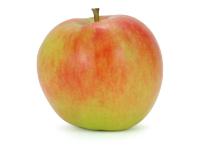One of the most important factors for baby’s health as well as your own has to do with the food you eat throughout pregnancy. Sensible eating will give your baby the best chance of a healthy beginning.
You can build and print a personalized food guide here!
This section will help you to:
- Learn about what makes up a healthy diet
- Know how much weight is good to gain in pregnancy
- Discover the nutrients critical to baby during pregnancy, including which foods are good sources of these nutrients
- Choose an appropriate multivitamin and mineral supplement
- Identify the foods you’ll need to avoid or modify to keep you and your baby safe
A healthy diet throughout pregnancy
A healthy diet combines many different foods from the 4 food groups of Canada’s Food Guide.
In terms of extra food, now that you are pregnant you will need a little more food than you did before you were pregnant, but you only need this extra food during your 2nd and 3rd trimesters. During your 1st trimester, you don’t need any extra food or calories. During the 2nd and 3rd trimester, you will need an extra 2-3 food guide servings per day. In terms of calories, if you were at a healthy weight before pregnancy, you will need to eat an extra 350 calories in the 2nd trimester and 450 calories in the 3rd trimester.
Some examples of snacks with 350 and 450 calories include:
350m Calorie Snacks:
Fruit Parfait – containing 3/4 cup (175 ml) yogurt, 1/2 cup berries, and 1/2 cup (125 ml) granola
(i serving milk and alternatives, 1 serving vegetables and fruit, 1 serving grain products)

The need for calories only increases a little. The need for nutrients increases a lot!
Eat Twice as Healthy, and not Twice as Much
Half a multi-grain bagel with 1.5 oz (50 g) light cheddar cheese, 1/2 cup (125 ml) blueberries
(1 serving grain products, 1 serving milk and alternatives, 1 serving vegetable and fruits)
1 cup (30 g) bran cereal with 1 cup (250 ml) skim milk, and a small apple
(1 serving grain products, 1 serving milk and alternatives, 1 serving vegetables and fruit)
450 Calorie Snacks:
1 bran muffin (70-105 g) with 3/4 cup (175 ml) yogurt
(2-3 servings grain products, 1 serving milk and alternatives)
1 pear, 4 tbsp (60 ml) of almonds and 3/4 cup (175 ml) yogurt
(1 serving vegetables and fruit, 1 serving meat and alternatives, 1 serving milk and alternatives)
2 tbsp (30 ml) peanut butter on 1 slice whole grain bread, with 1 small banana and 1/2 cup (125 ml) of milk
(1 serving meat and alternatives, 1 serving grain products, 1 serving vegetables and fruit, 1/2 serving milk and alternatives)
If you are pregnant with twins, triplets or more, you will need even more food than if you were only carrying one baby. Talk to your healthcare provider about how much extra food you need or call Health Link in Alberta at 8-1-1 (1-866-408-LINK). A registered dietitian is now part of the team and can help answer your questions and connect you with the appropriate resources.
Other ways to eat well when you are pregnant include:
Eat every 2 to 4 hours when you’re awake to help you feel better and to provide a steady supply of nutrients to your growing baby. Skipping meals makes it hard to get all the nutrients you and your baby need.
Meals should contain foods from 3 or 4 food groups, and snacks should contain foods from 1 to 3 food groups.
A healthy plate that follows Canada’s Food Guide will look like:
- 1/2 the plate would be vegetables and fruit
- 1/4 the plate would be meat and alternatives
- 1/4 the plate would be grain products
- 1 cup (250 ml) of skim milk as a beverage
Although you may have cravings or an appetite for sugary foods, limit foods like pop, chips, ice cream, chocolate, cookies etc to less than 2 times per week. They are low in nutrients and high in calories.
Drink plenty of fluids (about 9-10 cups) every day. This could include milk, water, 100% fruit juice and soup.
If you are limiting the amount of coffee you have, try not to replace it with juice. Instead replace it with milk or water. If you drink juice, limit the amount of juice you have to less than 1 cup (250 ml) per day.